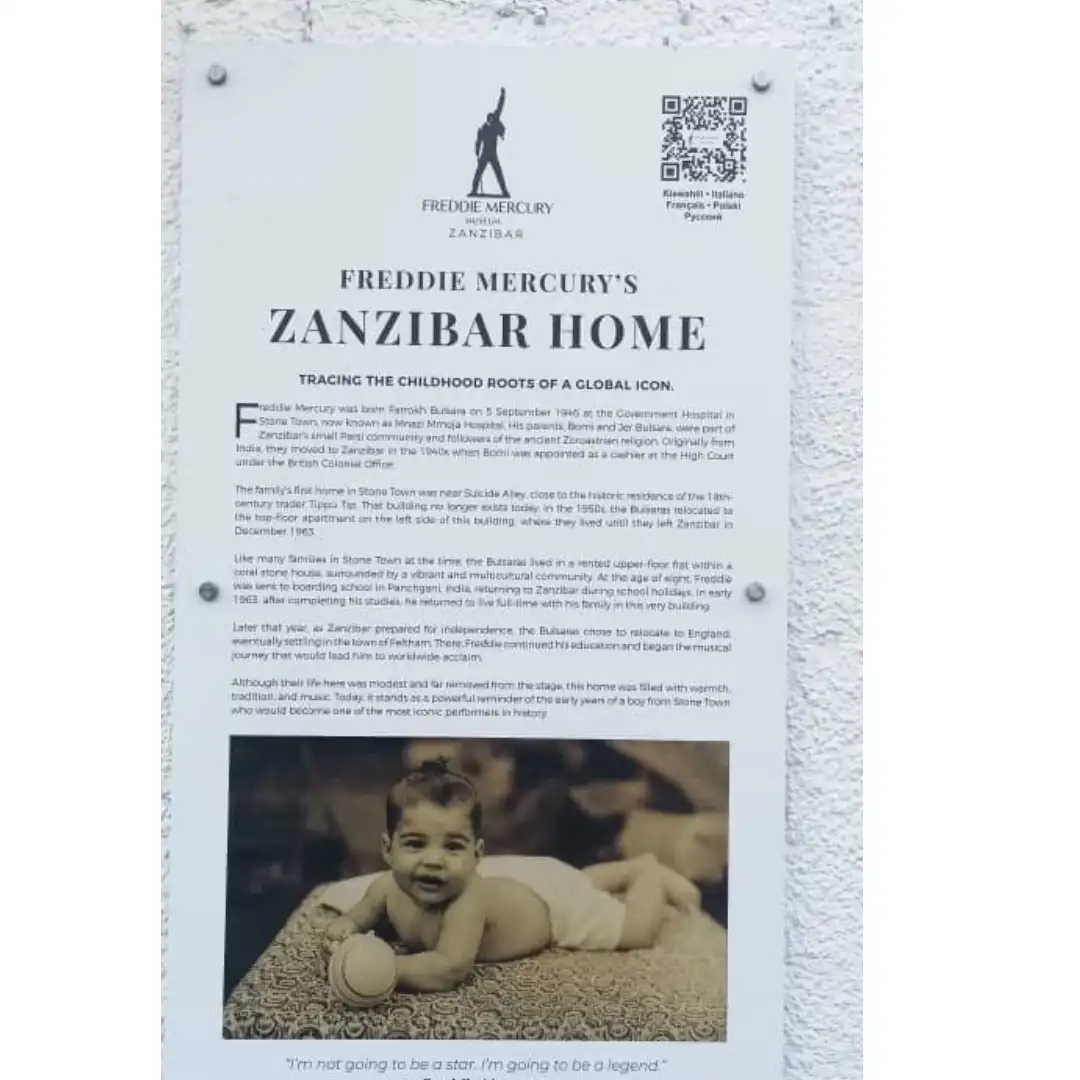A British singer and songwriter
Few names in music history shine as brightly as Freddie Mercury. Born Farrokh Bulsara on September 5, 1946, in Zanzibar, Tanzania, Freddie rose to become one of the most iconic and influential figures in rock history. As the lead vocalist and frontman of the legendary band Queen, his voice, charisma, and creativity forever changed the world of music.
Freddie Mercury spent his early childhood in Zanzibar before moving to India for school. From a young age, he showed a deep passion for music and art. He later moved to England with his family in the 1960s, where he studied graphic design at Ealing Art College. His artistic background later influenced Queen’s album covers and stage designs.
In 1970, Freddie met guitarist Brian May and drummer Roger Taylor, forming a band that would soon be called Queen. Bassist John Deacon joined shortly after, completing one of the most legendary lineups in rock history.
Queen’s music was revolutionary—blending rock, opera, and theatrical elements in ways that no one had done before. Freddie’s incredible four-octave vocal range and flamboyant stage presence made every performance unforgettable.
Songs like “Bohemian Rhapsody,” “We Are the Champions,” “Don’t Stop Me Now,” and “Somebody to Love” showcased Freddie’s unmatched songwriting talent and emotional depth. His ability to connect with audiences, whether through an energetic stadium anthem or a heartfelt ballad, made him truly one of a kind.
A True Performer
Freddie Mercury was not just a singer—he was a showman. His confidence, style, and passion electrified audiences around the world. The band’s Live Aid performance in 1985 is often hailed as one of the greatest live performances in history. Dressed in a simple white tank top and jeans, Freddie commanded the stage at Wembley Stadium, leading 72,000 people in unison with his voice and charisma.
Although he lived much of his personal life privately, Freddie’s openness about his sexuality and his fight with HIV/AIDS in the later years of his life helped raise awareness and break social barriers. He passed away on November 24, 1991, at the age of 45, leaving behind a legacy of courage, creativity, and authenticity.
Freddie Mercury’s influence continues to inspire new generations of musicians and fans. His music lives on through Queen’s recordings, concerts, and even the 2018 film “Bohemian Rhapsody,” which introduced his story to millions around the world.
Freddie Mercury was more than a rock star—he was a symbol of freedom, individuality, and artistic brilliance. His voice continues to echo through time, reminding us that true legends never die. As he once sang, “The show must go on,” and indeed, Freddie’s show will go on forever.


